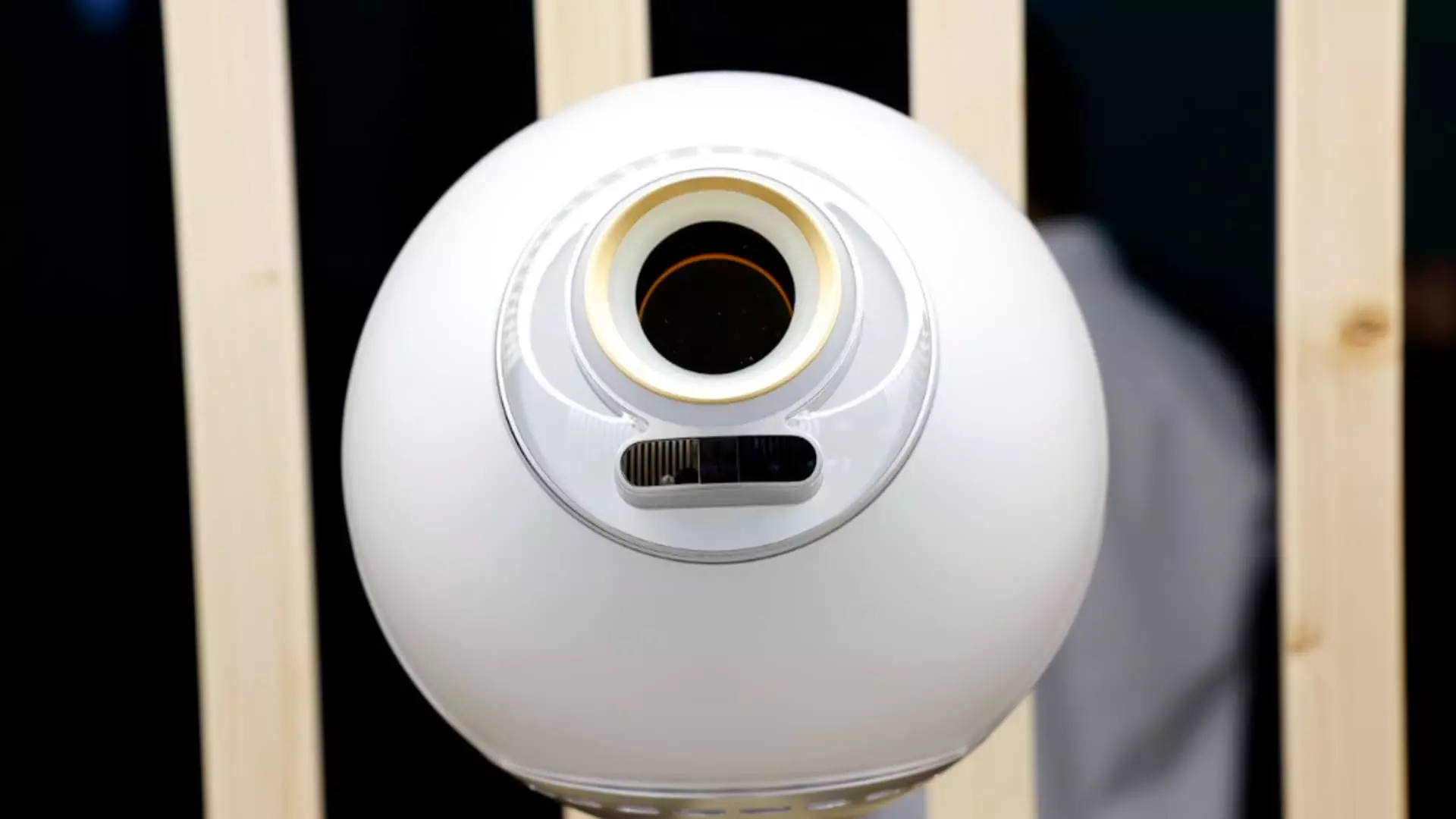As World, a biometric identity verification system co-founded by OpenAI CEO Sam Altman, gears up for launch in the UK, the air is thick with anticipation. Utilizing a spherical eye-scanning device known as the Orb, the project purports to scan irises and faces to assign a unique biometric code, effectively distinguishing humans from AI. Yet, while such innovations are framed as necessity in a rapidly digitizing world, we should pause and assess the broader implications. Are we stepping into a new age of convenience, or are we careening toward a dystopian reality where our most intimate data is laid bare?
The introduction of World in London and other UK cities—Manchester, Birmingham, Cardiff, Belfast, and Glasgow—stirs a mix of excitement and unease. While many see this as a solution to burgeoning issues tied to AI fraud, it doesn’t take much imagination to foresee that this extensive surveillance may become a tool for abuse. Once information is collected and stored, data privacy remains a precarious concern. The very fabric of individual security is at stake, and it is genuinely alarming when you consider the myriad of ways this technology could be exploited.
Biometrics: The Double-Edged Sword
Biometric identification, particularly iris scanning, is often celebrated for its accuracy and security. However, as with any form of technology, simpler fraud mechanisms could quickly emerge to circumvent these measures. Adrian Ludwig, the chief architect of Tools for Humanity, claims there is “significant demand” from enterprises and governments. But what happens when such a demand morphs into a monopoly over human identification? The monopoly would not merely encompass biometric data but would extend into an individual’s digital footprint—intermingling personal security with corporate interests.
Further complicating this is the notion of the “World ID,” designed to work with platforms like Discord and Reddit. While it claims to provide anonymity, this veiled approach comes with its risks. Will this anonymity shield users from scrutiny, or could it create a breeding ground for illicit activities? The implications are profound—they could easily result in a virtualedged society where one’s social and digital identity can be weaponized against them.
Cryptocurrency Ties Complicate the Ethical Landscape
The integration of WLD cryptocurrency into the equation introduces a whole new level of complexity. While monetary incentives may encourage early adoption, they also mean that people could feel obligated to participate in an intricate system that may not safeguard their interests. The allure of cryptocurrency typically lies in its decentralization and the promise of anonymity, yet here it becomes intertwined with a centralized biometric authentication process. This contradiction raises eyebrows: Can serious security concerns be glossed over with a crypto-bonus?
Society teeters on a precipice as digitization and economic incentives blend with privacy-reducing technologies. Every time one of these systems is exploited or hacked—and make no mistake, they will be—those at the mercy of such digital mechanisms could lose not only money but their identities. This balance must be scrutinized. A system designed to enhance security must not come at the cost of increased vulnerability.
Government Regulation: An Illusion of Security?
Ludwig indicates that World is engaging with various regulators, signaling an awareness of the ethical landscape they tread. The conversations with bodies like the UK’s Information Commissioner’s Office imply a desire for oversight, yet we must question the efficacy of these conversations. Governments have struggled to impose robust regulations that protect citizens from digital overreach. Take India’s Aadhaar, for instance, which, despite its initial promise, has been criticized for mishandling security and causing social inequalities. Will World do better, or will it repeat the same mistakes?
There’s a palpable irony in the narrative of using biometric technology to curb fraud when its own essence might give rise to new forms of inequity. The government’s pursuit of improved identity infrastructures often collides with the quest for privacy and civil liberties. This becomes especially daunting if there is no clear framework for balancing these objectives.
The Future: A Cautionary Tale Awaits
Ultimately, the introduction of World signifies a broader trend toward digitization that’s occurring across the globe. While society may view this as a leap toward modernity, we cannot ignore the strings attached. As we transition from physical to digital identities, we must confront the uncomfortable truths that come with unprecedented access to our most personal data. The onus is on us, the citizens, to demand more stringent regulations and transparency in how our biometric data will be used, controlled, and safeguarded.
This is not merely a technological crossroads; it is a moral one. The convenience of World’s identity verification should not eclipse the grave ramifications of privacy loss. Let’s tread carefully, for in the world of biometrics, one misstep may lead to a future marred by surveillance and a haunting erosion of individual freedoms.

